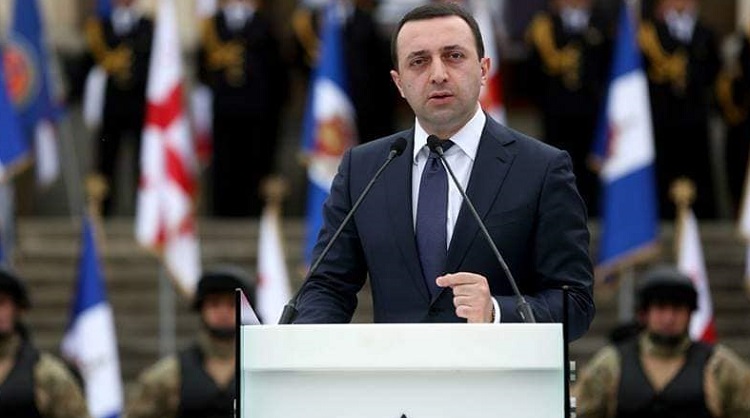PM Garibashvili: anti-terrorism agreement with Belarus not against anyone, including Belarus citizens

Georgian PM Irakli Garibashvili has stated that the country’s enemies have tried to use an ‘ordinary agreement’ signed with Belarus to damage Georgia’s image: Photo: government of Georgia press office.
The Georgian Prime Minister Irakli Garibashvili has responded to tweets by the opposition and several former foreign diplomats critical of the anti-terrorism and anti-corruption agreement signed with Belarus back in 2016, stating that the ‘ordinary agreement’ poses no threats to anyone, including the Belarus citizens who are in Georgia.
Georgian opposition party Droa and several foreign officials and diplomats have tweeted that the ‘recent agreement’ between Georgian and Belarus intelligence services, following the disputed 2020 elections in Belarus, was alarming and it may cause problems for Belarusian citizens who live or are seeking asylum in Georgia.
Garibashvili explained that the agreement was signed with Belarus five years ago when the western countries had normal relations with the country and that the agreement had only entered into force earlier this month.
The turmoil around the issue is a classic example of fake news and how the country's enemies are trying to use an ordinary issue against state interests,” Garibashvili said.
❗️Statement: We are horrified by the @GovernmentGeo’s decision to sign a collaboration agreement w/ Lukashenka’s KGB.This not only legitimizes Lukashenka’s horrendous&illegitimate regime that is responsible for thousands of deaths,but also endangers lives of Belarusians here(1/2)
— Droa (@MovementDroa) August 14, 2021
He stated that many western countries had such an agreement signed with Belarus.
Earlier the Georgian State Security Service responded to the ‘disinformation’ and said that it was a ‘deliberate campaign’ against the state and the agency.
The agency said that the agreement covered cooperation against terrorism, corruption as well as other international and transnational organised crimes.
We have such an agreement signed with the US, UK, France, Lithuania and other NATO and EU-member countries,” said the agency.
The SSS said that per the agreement, Georgia and Belarus will exchange information against crime voluntarily and that the agreement never obliges the signatories to act against their own interests.
 Tweet
Tweet  Share
Share